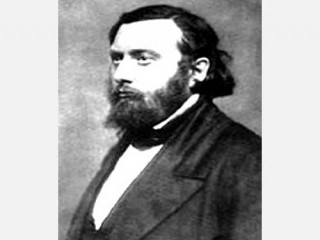
Pierre Du Pont biography
Date of birth : 1870-01-15
Date of death : 1954-04-05
Birthplace : Wilmington, Delaware, U.S.
Nationality : American
Category : Famous Figures
Last modified : 2010-09-09
Credited as : Industrialist and businessman, chairman of the board of E. I. du Pont de Nemours and Company,
0 votes so far
Early life
Pierre Samuel du Pont was born in Wilmington, Delaware, on January 15, 1870. He was one of Lammot du Pont and Mary Belin's eleven children. His father, who had broken away from the family business of producing gunpowder for use in ammunition, was an important figure in the early production of dynamite. Pierre du Pont was fourteen years old when his father died in an explosion. Afterward he took over responsibility for the family, leading several of his brothers to refer to him as "Dad."
After receiving a bachelor's degree from the Massachusetts Institute of Technology in 1890, du Pont became a chemist in the family firm. In 1899 he took over as president of the Johnson Company in Lorain, Ohio, working with a cousin, Coleman du Pont, and finding a sharp assistant named John J. Raskob. The company was eventually sold, and in 1902 du Pont, his cousin Coleman, and another cousin, Alfred du Pont, purchased and reorganized the family business to prevent it from being sold to a rival firm. Raskob came along as du Pont's assistant.
Management of the business
Du Pont and his cousins quickly expanded and improved the company. Competing explosive-making companies were bought out, factories were improved, and research laboratories were set up. Workers had to be able to do their jobs; members of the family were not guaranteed anything because of their names. The company made a successful change from a family operation to one run by professional managers. The new company structure divided authority between central management and the operating departments. Management concentrated on long-term policy decision making, while the operating departments handled day-to-day problems. Pierre du Pont, with Raskob's help, established new recordkeeping and monitoring methods that were copied by many other companies.
After Coleman du Pont became involved in other businesses, Pierre du Pont became president of the firm in 1915, an office he held until he became chairman of the board in 1919. (Alfred du Pont was removed from the corporation after opposing Pierre's purchase of Coleman's interest in the company.) Pierre remained as chairman until 1940. He guided the company through its enormous expansion during World War I (1914–18) and its later involvement in products outside the explosives industry such as coal, natural gas, and chemicals for industrial and farm use. He also acquired several newspapers in Delaware.
The Du Pont Company first invested in the General Motors Company in 1917 at the urging of Raskob. Three years later William C. Durant, president of General Motors, found himself in financial (money-related) difficulty. Because possible failure of General Motors might have hurt Du Pont's investment, the Du Pont Company bailed out Durant, but in the process the company took over all of his holdings in General Motors. As a result, although he was not thrilled with the position, Pierre du Pont became president of General Motors and occupied that office until 1923, when Alfred P. Sloan, Jr. replaced him.
Other activities
Du Pont was also active in public affairs. He held numerous offices in the state government of Delaware, including tax commissioner. Initially a supporter of Franklin D. Roosevelt (1882–1945), du Pont was a strong opponent of government involvement in business affairs, and as a result he opposed Roosevelt's reelection in 1936. He was one of the founders of the American Liberty League, which unsuccessfully appealed to voters to defeat Roosevelt's New Deal (his plan to expand the functions of the federal government in an attempt to provide jobs for the unemployed and carry out social reforms). Du Pont felt that many of the provisions of the plan represented a taking away of individual freedoms.
Du Pont died in Wilmington on April 5, 1954. He had shown great vision in helping make the Du Pont Company one of the most successful companies in the twentieth century. Through his public works and donations to various charities, he showed a concern for the greater good of society.
















